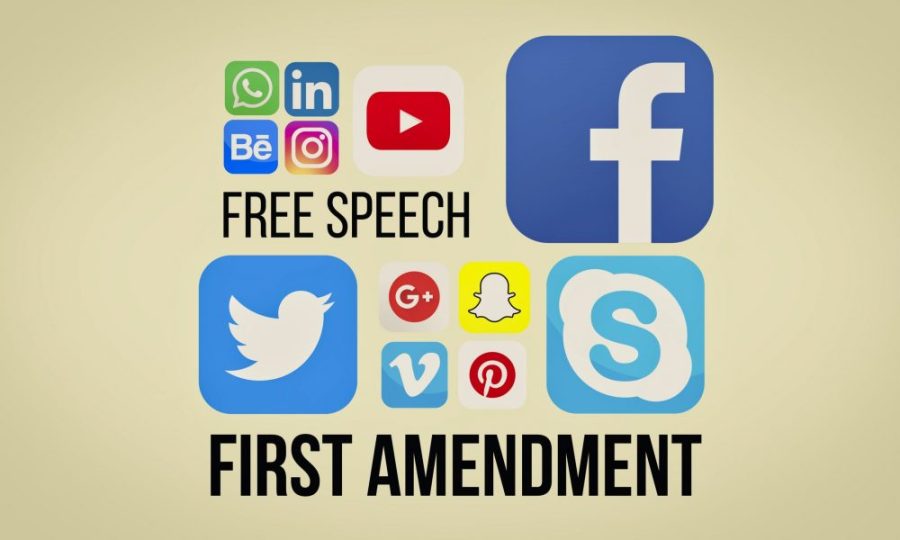First Amendment Rights and Politician’s Social Media
While recently doing research, I came across a legal case listed on a website which caught my eye. This legal case (which never actually reached court) is principally about two individuals: Kristin Ferklic of Brownsburg, Indiana, and Superintendent Jim Snapp, and concerns whether the Superintendent blocking Ferklic on his Twitter account is a violation of First Amendment Rights. Intrigued, I began to research further, and found that cases involving First Amendment Rights are plentiful – and incredibly inconclusive in their rulings. The results of this case and others led me to two questions: What is the legal precedent for whether an official blocking someone is unconstitutional, and perhaps more importantly, should it be unconstitutional?
Section I: What is the legal precedent for whether an official blocking someone is unconstitutional?
Despite digging through multiple court cases, I have found no clear consensus on this topic. In the case mentioned above, Ferklic claimed to be “deeply concerned about the curriculum used by Brownsburg Community School Corporation,” and had views that “conflict[ed] with the recommendations of BCSC Superintendent Jim Snapp.” After she was blocked from Snapp’s twitter account, the Liberty Justice Center, a nonprofit litigation center, assisted her to write a demand letter asking to be unblocked.
Now, as previously stated, this argument never made it to court. However, the letter sourced several other court cases as proof that this action was unconstitutional. Specifically, they cited Campbell v. Reisch, Knight First Amendment Inst. at Columbia Univ. v. Trump, Davison v. Randall, and Robinson v. Hunt Cty., Texas. I looked through these cases and was surprised to find contradictory rulings.
Campbell v. Reisch involved a state representative in Missouri (Reisch) blocking a citizen (Campbell) for retweeting another representative’s tweet on one of Reisch’s posts. Initially, a district court found that Campbell was correct, and this action was unconstitutional, but this was later overturned once the case was appealed. In the end, the 8th circuit court decided that a state representative is entitled to block a citizen on social media without violating their constitutional rights.
However, the next case, which was seemingly identical, had the exact opposite ruling. Davison v. Randall ruled that the chair of a Loudon County board of supervisors could not block people from his Facebook account because of their views. Knight First Amendment Inst. at Columbia Univ. v. Trump similarly ruled that President Trump could not block Twitter accounts that criticized his presidency and policies. This well-known case eventually made its way to the Supreme Court, which vacated the decision for mootness, because Trump was no longer president, denying us from an overarching legal answer on whether or not it is illegal for a politician to block critics on social media.
Robinson v. Hunt Cty., Texas, on the other hand, declared that individual public officials were indeed allowed to moderate their social media, though an account dedicated to a government organization could not block members for their political views. The absence of unanimity now leads to my second and increasingly important question: should it be unconstitutional for a politician to block someone from their social media?
Section II: Should it be unconstitutional for a politician to block someone from their social media?
Much of this debate revolves around whether a politician’s Twitter, Facebook, or other social media constitutes a public forum. Assuming for a moment that it does, it is quite clear that banning someone from that space is a violation of their First Amendment rights. On the flip side of this argument, many believe that uncensored access to public forums such as the social medias of public officials, is something that Americans need to have their voices properly heard, and their First Amendment rights fulfilled. Many others argue that First Amendment rights should not come into play with social media at all, as these platforms, which are owned by private corporations, should not be subject to any government interference, and decisions on such websites should be left to the company’s discretion.
The morality and legality of “suppressing” freedom of speech on social media is something that is becoming increasingly important to consider, with 72% of the population using such platforms. Additionally, a decision on this front is something that could carry over to other legal questions, such as whether it is constitutional for Twitter to have banned President Trump. In the end, there is no easy answer to this question, and we will have to wait and see which answers arise from the court cases still to come.



Lev Weitzman • Jul 17, 2023 at 9:07 am
OMG Best Article Ever